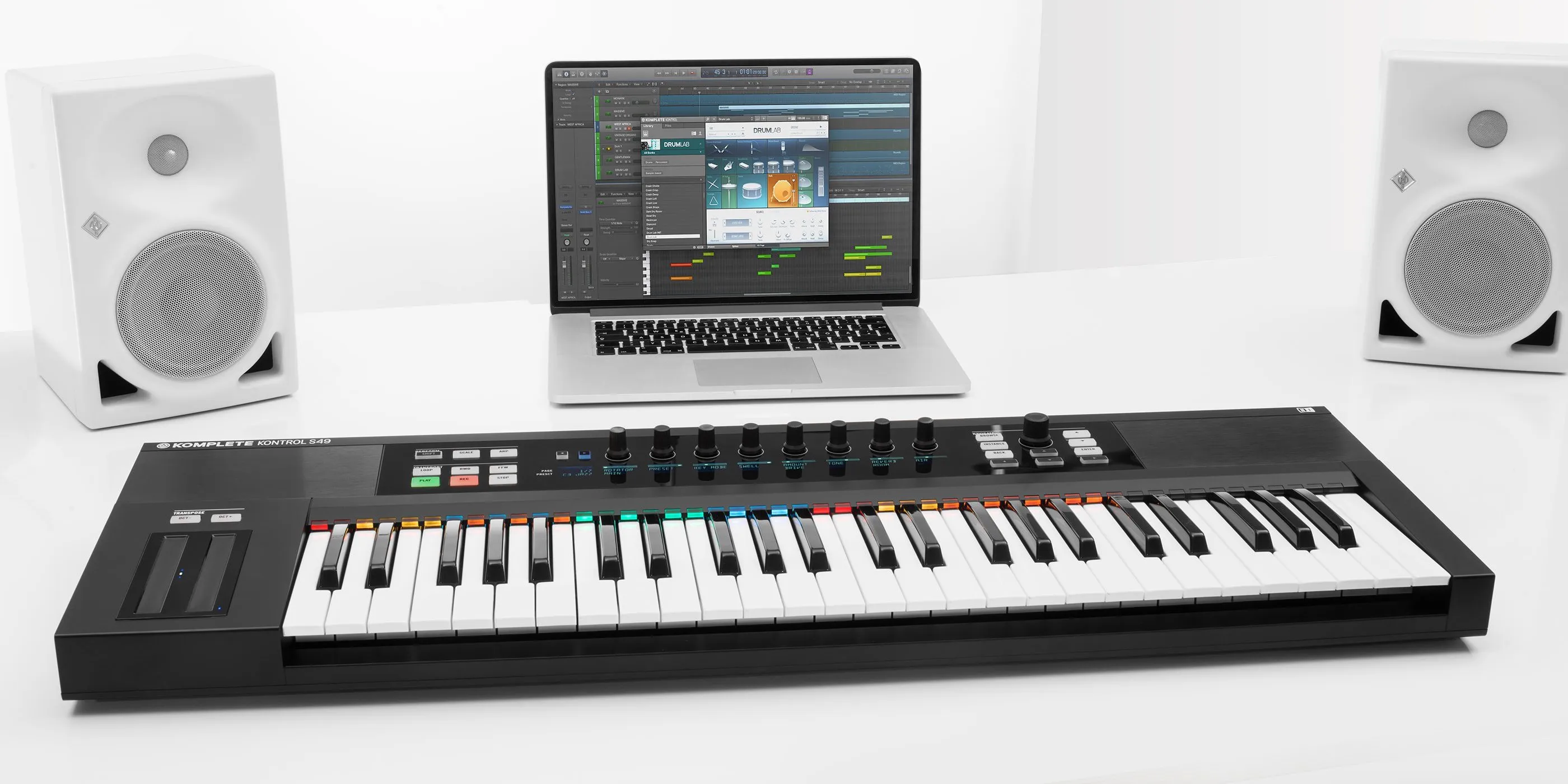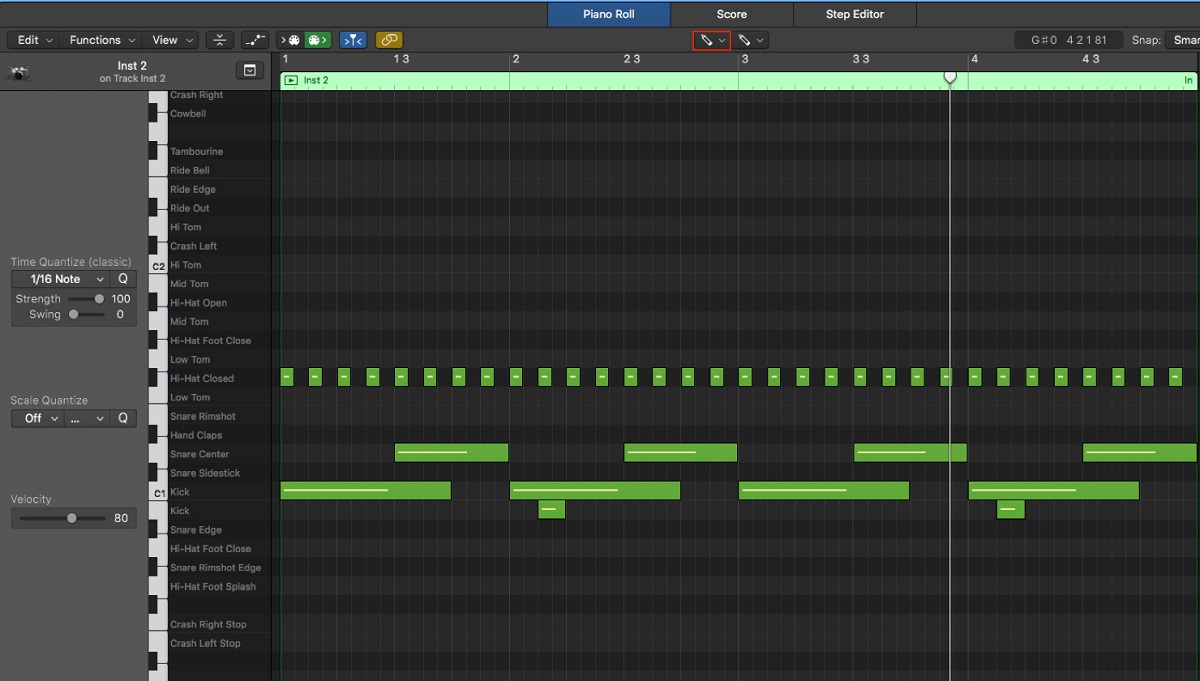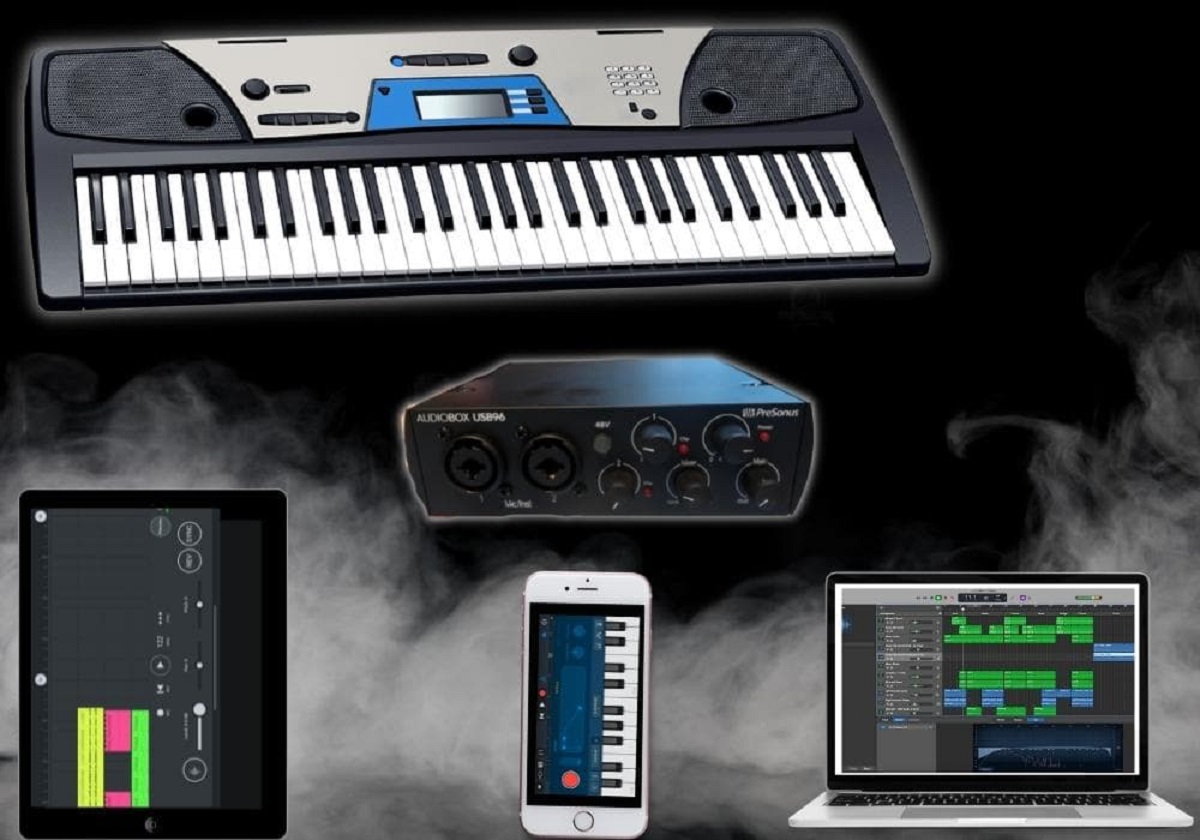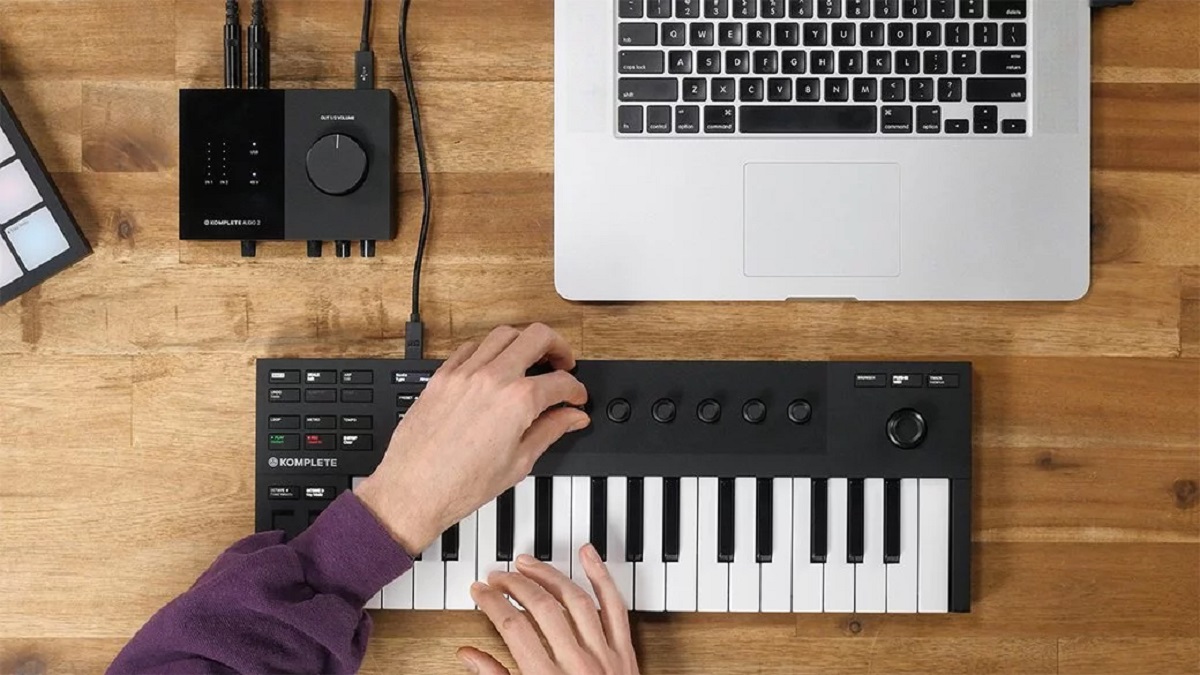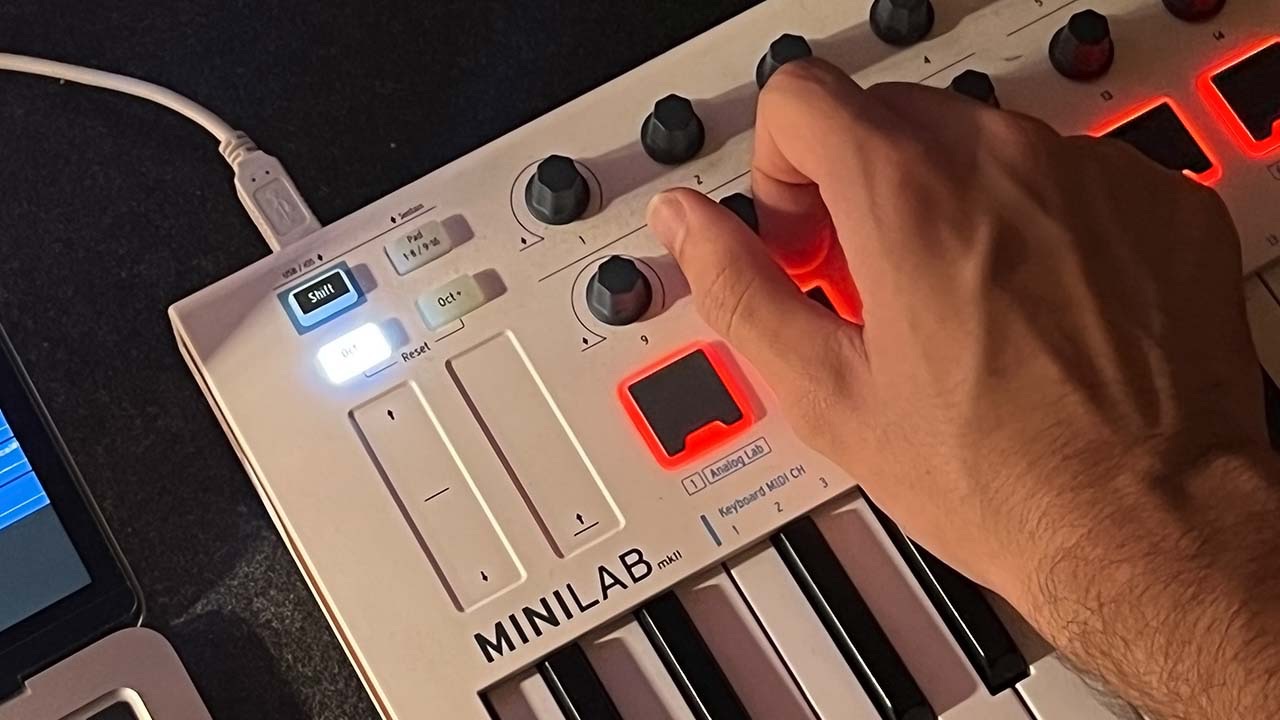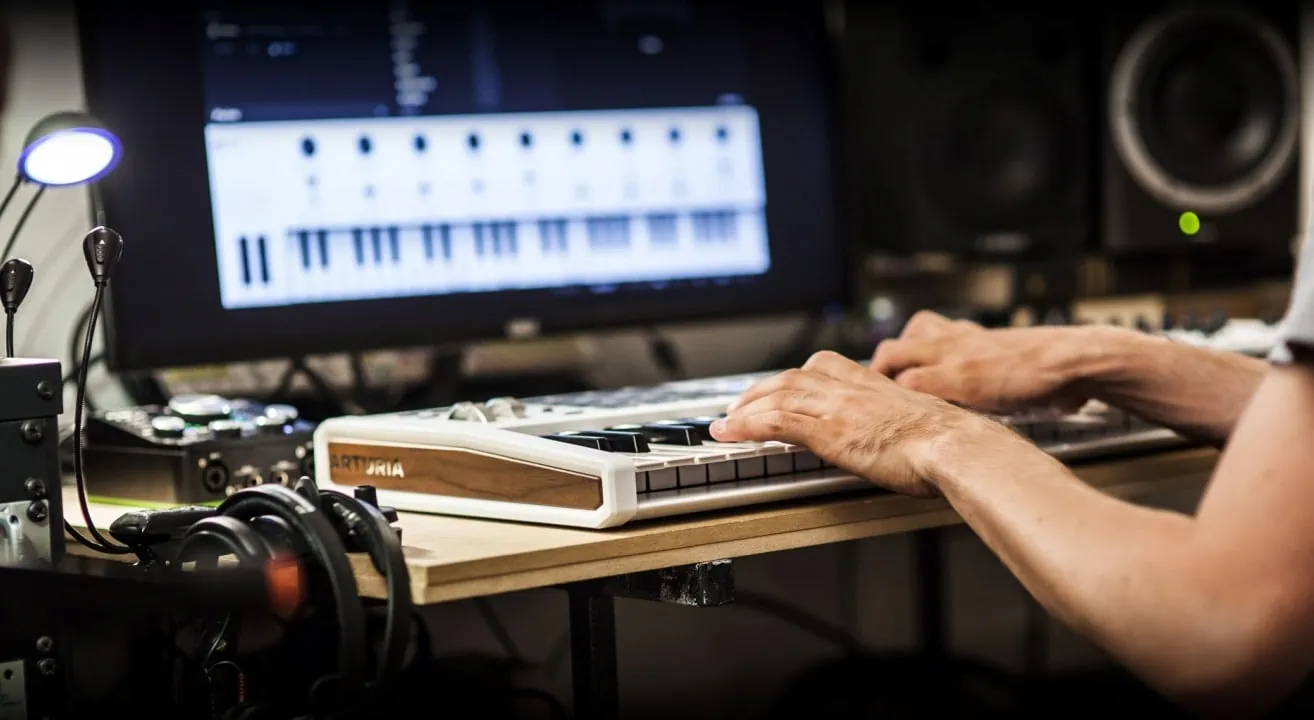Introduction
When it comes to music production, having the right tools can make all the difference. For those using Logic Pro X, a MIDI keyboard is an essential piece of equipment that can greatly enhance the creative process. A MIDI keyboard, also known as a controller keyboard, is a versatile instrument that allows musicians and producers to input musical notes, control virtual instruments, and manipulate various parameters within their digital audio workstations (DAWs).
Logic Pro X, with its robust features and intuitive interface, is a popular choice among music creators. However, not all MIDI keyboards are created equal, and finding the right one to complement Logic Pro X is crucial for a seamless and efficient workflow. In this guide, we will delve into the world of MIDI keyboards and explore the key considerations for selecting a compatible and feature-rich option for use with Logic Pro X.
Whether you’re a seasoned producer or just starting out, understanding the intricacies of MIDI keyboards and their integration with Logic Pro X can help you make an informed decision when choosing the perfect tool to bring your musical ideas to life.
Understanding MIDI Keyboards
Before delving into the specifics of MIDI keyboards and their compatibility with Logic Pro X, it’s essential to grasp the fundamental aspects of these versatile instruments. A MIDI keyboard is a type of electronic musical keyboard that is capable of sending MIDI data to other devices. Unlike traditional keyboards or pianos, MIDI keyboards do not produce sound on their own. Instead, they serve as controllers that transmit MIDI signals to external devices such as computers, synthesizers, and sound modules.
One of the key advantages of MIDI keyboards is their ability to interface with digital audio workstations like Logic Pro X, allowing users to create, record, and manipulate musical elements with precision and flexibility. These keyboards typically feature piano-style keys, along with a range of knobs, sliders, and buttons that can be assigned to various parameters within the DAW.
Additionally, MIDI keyboards come in various sizes, from compact 25-key models to full-sized 88-key versions, catering to different playing preferences and space constraints. Some models also offer aftertouch and velocity sensitivity, enabling expressive and dynamic playing styles. Furthermore, the integration of drum pads and assignable controls expands the creative possibilities, making MIDI keyboards versatile tools for both music production and live performance.
Understanding the functionality and capabilities of MIDI keyboards is crucial for making an informed choice when selecting a model that aligns with your workflow and creative needs. With this knowledge in hand, you can explore the vast array of MIDI keyboards available and identify the features that will best complement your music production endeavors within Logic Pro X.
Compatibility with Logic Pro X
When considering a MIDI keyboard for use with Logic Pro X, compatibility is a paramount factor. Logic Pro X, as a comprehensive digital audio workstation, offers extensive MIDI implementation, making it crucial to choose a MIDI keyboard that seamlessly integrates with the software’s features and functionalities.
Most modern MIDI keyboards are designed to be compatible with Logic Pro X, as they typically utilize the standard MIDI protocol for communication. However, it’s essential to ensure that the specific model you choose is fully compatible and optimized for use with Logic Pro X, offering streamlined integration and enhanced workflow efficiency.
Key considerations for compatibility include the implementation of MIDI mapping, which allows the MIDI keyboard’s controls to be easily assigned to various parameters within Logic Pro X, such as instrument parameters, mixer controls, and transport functions. Additionally, features like plug-and-play functionality, automatic DAW detection, and pre-configured mappings can significantly enhance the user experience, minimizing setup time and maximizing creative productivity.
Furthermore, the MIDI keyboard’s driver support and firmware updates play a crucial role in ensuring ongoing compatibility with Logic Pro X, especially as software updates and new features are introduced. Manufacturers that prioritize regular updates and provide dedicated software for configuring MIDI keyboard settings can offer a more seamless and future-proof integration with Logic Pro X.
Ultimately, a MIDI keyboard that is fully compatible with Logic Pro X can elevate the music production experience, empowering users to harness the full potential of the software’s capabilities while leveraging the tactile control and expressive capabilities of the MIDI keyboard. As you explore the myriad options available, prioritizing compatibility with Logic Pro X will set the stage for a harmonious and efficient creative process.
Features to Look for in a MIDI Keyboard
When embarking on the quest to find the ideal MIDI keyboard for use with Logic Pro X, it’s essential to consider a range of features that can enhance the overall music production experience. These features not only contribute to seamless integration with Logic Pro X but also cater to the diverse needs and preferences of musicians and producers.
- Key Count and Size: The number of keys on a MIDI keyboard can vary, ranging from compact 25-key models to full-sized 88-key versions. Consider the space available and your playing style when choosing the appropriate key count and size.
- Key Action and Sensitivity: Opt for a MIDI keyboard with keys that offer a comfortable and responsive playing experience. Features such as weighted, semi-weighted, or synth-action keys, along with velocity sensitivity and aftertouch, can greatly influence expressiveness and playability.
- Assignable Controls: Look for a keyboard with a variety of assignable controls, including knobs, sliders, and buttons. These controls can be mapped to parameters within Logic Pro X, providing tactile manipulation of virtual instruments, effects, and mixing functions.
- Drum Pads and Performance Controls: For producers and live performers, integrated drum pads and performance controls can add versatility and creativity to music production. These features enable the triggering of samples, loops, and rhythmic elements with ease.
- Integration with Logic Pro X: Prioritize MIDI keyboards that offer seamless integration with Logic Pro X, including pre-configured mappings, automatic DAW detection, and dedicated control templates tailored to Logic Pro X’s features.
- Transport Controls: Having dedicated transport controls on the MIDI keyboard allows for convenient playback, recording, and navigation within Logic Pro X, streamlining the workflow and enhancing productivity.
- Expression Pedal Input: Consider a MIDI keyboard that features an expression pedal input, enabling nuanced control over parameters such as volume, modulation, and pitch within Logic Pro X.
- Compatibility and Firmware Updates: Ensure that the MIDI keyboard is designed to remain compatible with future updates to Logic Pro X, with regular firmware updates and robust driver support from the manufacturer.
By carefully evaluating these features and their alignment with your specific music production requirements, you can select a MIDI keyboard that not only complements Logic Pro X but also empowers you to unleash your creativity and musical vision with confidence and fluidity.
Top MIDI Keyboards for Logic Pro X
When it comes to choosing a MIDI keyboard that seamlessly integrates with Logic Pro X, several standout models offer a blend of exceptional features, performance, and compatibility. These top MIDI keyboards cater to a diverse range of preferences and production styles, providing musicians and producers with the tools they need to elevate their creative endeavors within Logic Pro X.
- Akai Professional MPK Mini MKII: This compact and versatile MIDI keyboard features 25 velocity-sensitive keys, eight backlit MPC-style pads, and eight assignable Q-Link knobs. Its plug-and-play functionality and comprehensive integration with Logic Pro X make it an ideal choice for producers seeking a portable yet powerful controller.
- Arturia KeyLab Essential 49: With its 49-note keyboard, intuitive performance controls, and seamless integration with Logic Pro X, the KeyLab Essential 49 offers a compelling combination of playability and functionality. Its responsive keybed, extensive DAW control, and included software instruments make it a valuable asset for music production.
- Native Instruments Komplete Kontrol S49 MK2: Designed to provide deep integration with Logic Pro X and Native Instruments’ Komplete software, this MIDI keyboard boasts a professional-grade keybed, ergonomic pitch and mod wheels, and advanced Smart Play features. Its intuitive workflow enhancements and NKS compatibility make it a standout choice for producers seeking comprehensive control and creativity.
- Novation Launchkey 61 MK3: Featuring a 61-note keyboard, responsive pads, and a wealth of performance controls, the Launchkey 61 MK3 offers seamless integration with Logic Pro X, along with deep Ableton Live integration. Its intuitive layout, custom modes, and MIDI 2.0 compatibility make it a versatile and expressive tool for music production.
- Arturia KeyStep Pro: Blurring the lines between a MIDI keyboard and a sequencer, the KeyStep Pro offers a 37-note keybed, comprehensive sequencing capabilities, and deep integration with Logic Pro X. Its polyphonic step sequencer, arpeggiator, and extensive connectivity options make it an innovative choice for producers seeking a multifaceted creative hub.
These top MIDI keyboards exemplify the fusion of cutting-edge technology, expressive playability, and seamless integration with Logic Pro X, empowering users to harness the full potential of their music production workflows. Whether you prioritize portability, comprehensive DAW control, or innovative performance features, these MIDI keyboards offer a compelling array of options to suit various creative needs within the realm of Logic Pro X.
Conclusion
As we conclude our exploration of MIDI keyboards for use with Logic Pro X, it becomes evident that the synergy between these essential tools can significantly impact the music production process. The selection of a MIDI keyboard tailored to the specific requirements of Logic Pro X can enhance creativity, streamline workflow efficiency, and provide a tactile and expressive interface for music creation.
Understanding the fundamental aspects of MIDI keyboards, including their compatibility, key features, and integration with Logic Pro X, is instrumental in making an informed decision when choosing the ideal controller for music production endeavors. From the key count and size to the presence of assignable controls, drum pads, and seamless DAW integration, each feature contributes to the overall usability and creative potential of the MIDI keyboard within the Logic Pro X environment.
Furthermore, the top MIDI keyboards highlighted in this guide exemplify the convergence of innovation, performance, and compatibility, offering a range of options to cater to diverse musical styles and production preferences. Whether seeking portability, comprehensive DAW control, or innovative performance features, these MIDI keyboards provide a compelling array of choices for music creators utilizing Logic Pro X.
Ultimately, the journey to find the perfect MIDI keyboard for Logic Pro X is a personalized exploration, guided by the unique needs and creative aspirations of each individual. By leveraging the insights shared in this guide and considering the specific requirements of your music production workflow, you can confidently select a MIDI keyboard that harmonizes seamlessly with Logic Pro X, empowering you to bring your musical visions to fruition with precision, expression, and boundless creativity.







